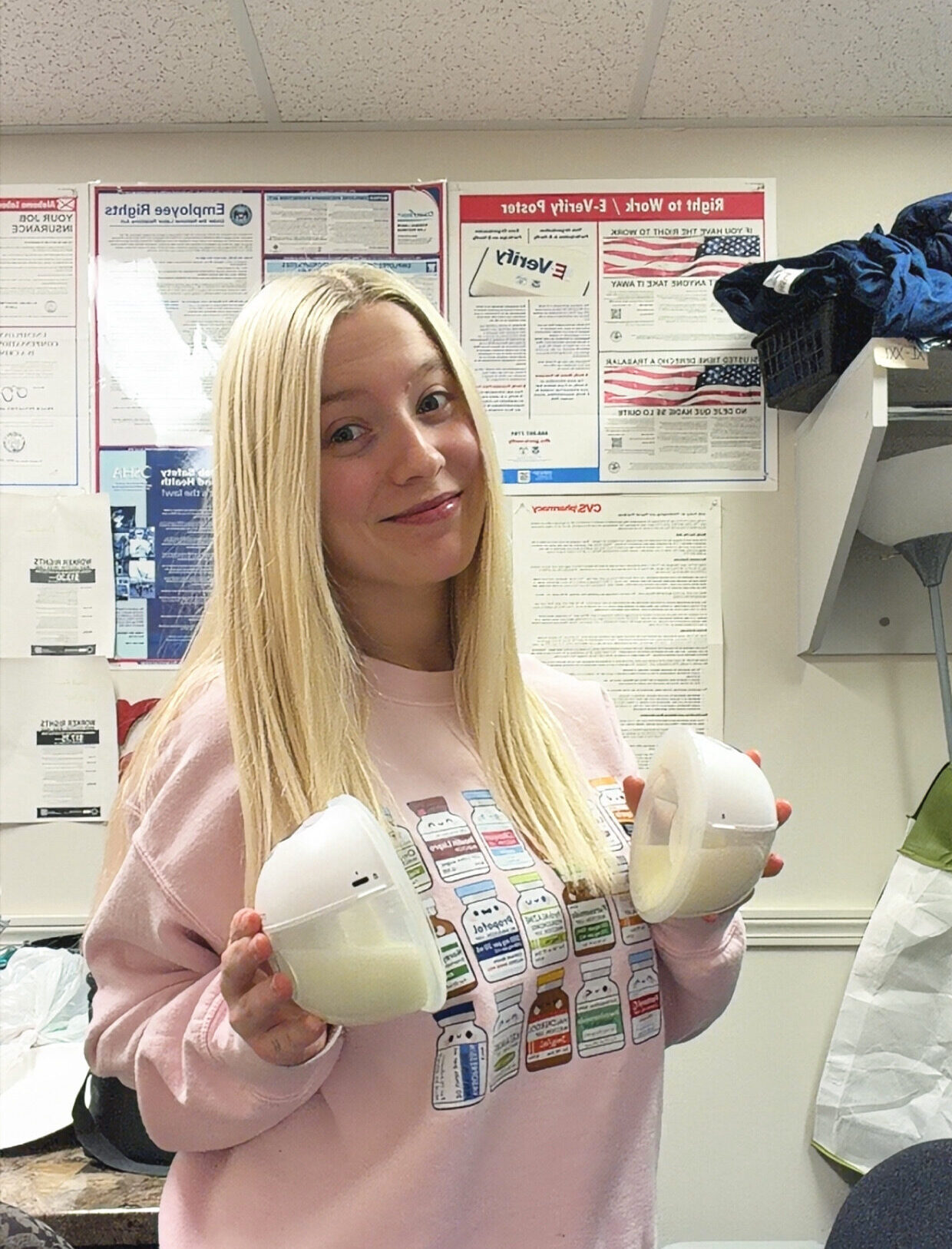Did you know, the newborn stage is also known as the fourth trimester? It’s a time when – as a new mother – we can feel overwhelmed, confused and incredibly emotional!
As new parents, we often find ourselves searching for answers:
“Why won’t my baby settle?”
“Why is he crying every evening?”
“Why will he only sleep on me?”
“Does he have reflux? Perhaps CMPA?”
It seems as though we are constantly questioning ourselves and seeking a diagnosis for why our babies are unsettled.
There can be so many reasons a newborn can be unsettled, and as parents we need to understand that newborns are difficult, they don’t just sleep and feed! Understanding how your baby’s digestive system works (and is still developing!) can help you feel more confident and reassured through those tricky early weeks.
The Basics of the Newborn Digestive System
At birth, a newborn’s digestive system is still maturing. While the basic anatomy is fully formed, the system itself isn’t yet functioning at full capacity. This can often cause symptoms that we as parents find difficult to manage. Let’s explore the reasons why:
- The digestive tract is learning how to move milk through efficiently.
- Enzyme production (which breaks down food) is limited.
- The gut microbiome – the community of bacteria that aids digestion – begins developing rapidly after the baby starts feeding.
Stomach Size & Feeding Needs
Newborn stomachs are small – around the size of a plum in the early weeks. They can only hold small amounts of milk at first, which is why frequent, small feedings are important. The stomach produces some digestive enzymes and stomach acid to begin breaking down milk.
Newborn stomachs are small – around the size of a plum in the early weeks.
Intestines & Nutrient Absorption
Once the milk moves into the intestines, nutrients begin to be absorbed. A newborn’s intestine is especially permeable, meaning it absorbs not just nutrients but also antibodies from breast milk, which help build the immune system.
The Role of the Microbiome
The digestive tract is sterile at birth but starts to populate with bacteria from breast milk, formula, and the environment. These good bacteria are essential for breaking down food, protecting against infections, and supporting overall health.
Breast Milk vs. Formula: Impact on Digestion
Both breast milk and infant formula provide the nutrients your baby needs, but they differ slightly in how they are digested.
- Breast milk is more easily digested and contains natural enzymes and antibodies. Babies tend to poop more frequently and have looser stools. Babies essentially feed more frequently when breast fed, but it will move much more comfortably around the digestive system.
- Formula takes a longer to digest, which may result in fewer but firmer bowel movements.
Enzymes & Bioactive Components
- Breastmilk contains digestive enzymes (e.g. amylase, lipase) and hormones that actively help with digestion.
- Formula doesn’t contain live enzymes or hormones, so the baby’s digestive system has to do all the work on its own essentially working a lot harder.

Helping Your Baby’s Digestive System Mature
You can support your baby’s digestive development by:
- Providing your baby with breastmilk, where possible.
- Feeding responsively rather than on a strict schedule.
- Ensuring proper burping to reduce gassiness.
- Holding the baby upright after feedings.
- Avoiding overfeeding.
Why Breast Milk Is So Beneficial for Newborn Tummies
Breast milk is generally better for a baby’s stomach than formula due to its unique biological composition, digestibility, and the way it interacts with the infant’s developing digestive system. Here’s a breakdown of why breast milk is gentler and more beneficial for a baby’s stomach:
1. Easier to Digest
- Proteins in breast milk (mostly whey) are softer, more soluble, and easier for a baby to digest than the casein-dominant proteins in most formulas.
- Formula proteins take longer to break down, which can cause gas, constipation, or discomfort in some babies.
2. Tailored Enzymes & Hormones
- Breast milk contains digestive enzymes like lipase and amylase, which help babies break down fats and carbohydrates more efficiently.
- These enzymes are not present in formula, making digestion more work for the baby’s immature gut.
Breast milk contains digestive enzymes like lipase and amylase, which help babies break down fats and carbohydrates more efficiently.
3. Prebiotics & Probiotics
- Breast milk has human milk oligosaccharides (HMOs) that feed good gut bacteria and support a healthy microbiome.
- Formula tries to mimic this, but HMOs are unique to human milk and very complex.
4. Immune Protection
- Breast milk includes antibodies (especially IgA), white blood cells, and anti-inflammatory factors that protect the gut from infections and inflammation.
- This helps prevent issues like diarrhea, gastroenteritis, and even conditions like necrotising enterocolitis (especially in premature infants).
5. Dynamic & Adaptive
- Breast milk changes composition over time – even during a single feeding – to match the baby’s needs.
- Formula is static and cannot adapt to a baby’s changing digestive or nutritional requirements.
6. Lower Risk of GI Issues
- Studies show breastfed babies tend to have fewer instances of reflux, constipation, and colic compared to formula-fed infants.
When Formula Is Still a Good Option
Formula is a safe and nutritionally complete alternative when breastfeeding isn’t possible or chosen. Modern formulas are designed to be as close as possible to breast milk, but some babies may still experience more stomach upset compared to breastfed infants.
Final Thoughts: The Fourth Trimester Is Hard – But You’re Not Alone
If your baby seems fussy, gassy, or unsettled, it doesn’t necessarily mean something is “wrong.” It might just be their developing digestive system doing what it needs to do.
Understanding what’s happening inside your baby’s body can ease some of the pressure we put on ourselves. Let’s continue to raise awareness about the fourth trimester, support each other, and advocate for realistic expectations during this intense and beautiful season of parenthood.



















